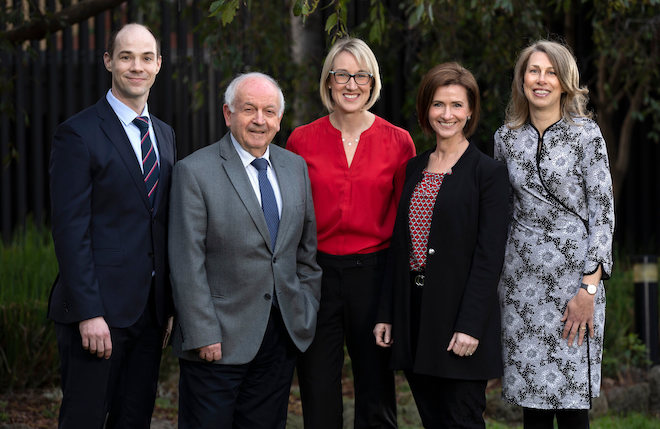There are a number of tests undertaken by our team to determine the correct diagnosis. Click on the links below to learn more about each of these topics.
Learning about your new diagnosis
Once you have gone through your tests, your doctor will see you again to discuss the results, what they mean and the plan for treatment. Sometimes the treatment will simply require simply watching and waiting. Sometimes the treatment will include medications including chemotherapy, radiation, surgery or a combination of treatments.
About Blood and Marrow cancers
At The Blood Unit, we care for patients with cancers of the blood and bone marrow. These include diagnoses such as:
- Leukaemias
- Myelodysplastic Syndromes
- Myeloproliferative Disorders
- Asplastic Anaemia
- Hodgkin Lymphoma
- Multiple Myeloma and Plasma Cell Disorders
These cancers mainly affect the cells that are normally produced in the bone marrow, and circulate in the blood or lymph system. The bone marrow is the soft, spongy tissue in the centre of bones where blood is made. The three main types of blood cells are:
- Red blood cells which carry oxygen to every part of the body. A reduction in red cells (anaemia) can cause fatigue (tiredness) and shortness of breath on exertion. Too many red cells can cause problems with blood flow to the small vessels in the brain, eyes and kidneys, raising the risk of stroke, heart attack and kidney problems.
- White blood cells which act as our immune system, controlling our defence against infection and inflammation. A reduction in white cells or abnormally functioning white cells can cause increased risk of infection and autoimmune disease. Too many white cells can cause problems with blood flow to the small vessels in the brain, eyes and kidneys, raising the risk of stroke, heart attack and kidney problems.
- Platelets which control bleeding by helping the blood to clot. A reduction in platelet numbers or abnormal platelet function can lead to bleeding and bruising. Too many platelets can cause problems with blood flow to the small vessels in the brain, eyes and kidneys, raising the risk of stroke, heart attack and kidney problems. Sometimes extremely high platelet counts can also cause bleeding problems.
Treatment of Blood and Bone Marrow Cancers
The first step of managing these disorders is to become well educated about the disease. Our Haematologist, our Specialist Haematology Nurse and the staff on the Day Oncology ward and the inpatient Cancer and Blood Diseases ward will work together to provide you with the information you need to understand your disease, prepare and plan for its treatment, and support you through this journey. We encourage you to write down your questions, keep a diary of your symptoms and your appointments, and discuss any concerns you have, no matter how large or small.
Broadly speaking, treatment for blood and marrow cancers aims at controlling the growth of the cancer with chemotherapy, radiation therapy, surgery and/or bone marrow transplantation. Cancer therapy often also requires supportive care such as blood product transfusions, and medications to prevent complications of the disease and its therapy.
Clinical trials
There are a great many exciting developments occurring all the time in Haematology Cancer research. At The Blood Unit we strongly encourage patients to consider Haematology related Clinical Trials, where we feel these are appropriate. Often a Clinical Trial is offered if it gives our patients access to emerging new therapies with strong evidence for effectiveness and safety in their disease. A trial may be recommended because it gives funded access to novel investigational therapies in patients with advanced disease, whose other treatment options may be very limited. We only recommend trials run with proper Ethics Board approval, running to the highest standard of clinical trial practice (the Code of Good Clinical Practice), and we carefully discuss all the options with our patients including non-trial treatments. Our highest priority is that our patients are able to make a fully informed choice about their treatment.
Referral information
Your General Practitioner or other treating specialist can make a referral to our Service. Please see our Referrals page for more details.

